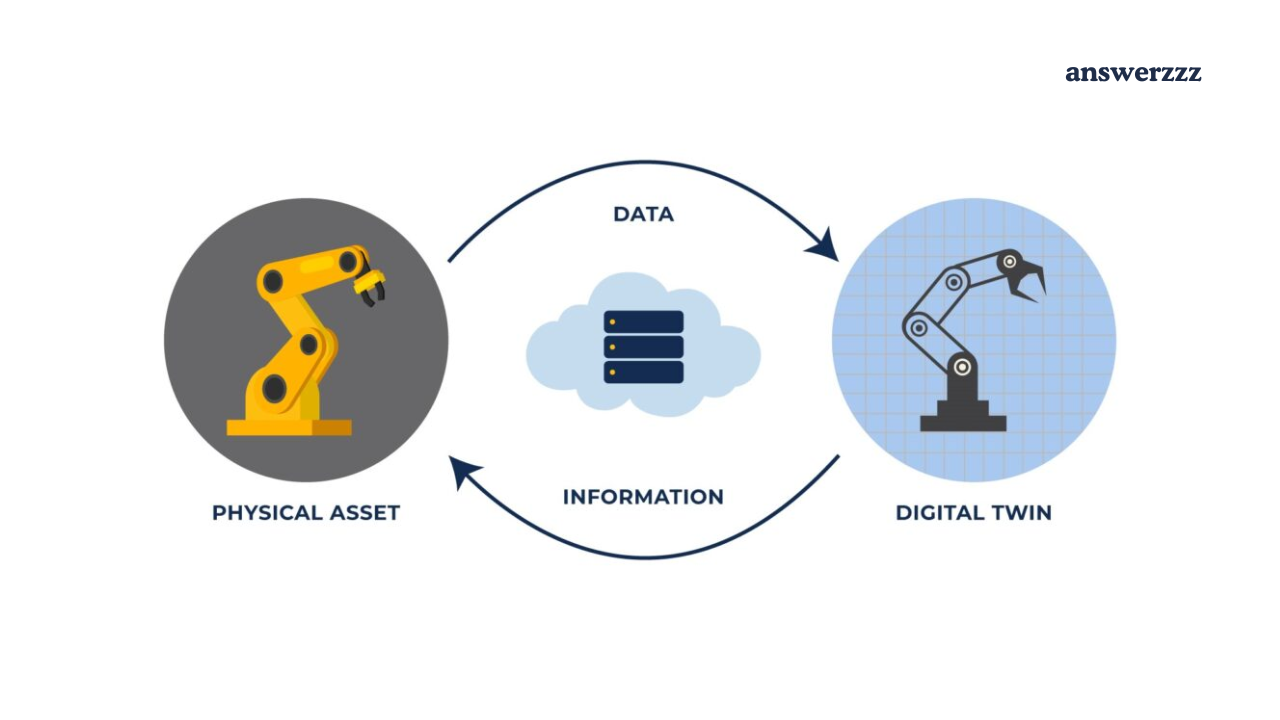Quantum computing is transforming from a niche research topic to a globally recognized technological powerhouse, promising to revolutionize industries and fundamentally change how we approach problem-solving. The year 2024 marks a significant turning point as advancements in hardware, software, and collaborative research accelerate, bringing us closer to practical applications of quantum computing that could redefine sectors like cybersecurity, healthcare, logistics, and more. This article explores the rapid rise of quantum computing in 2024 and examines its potential impact on our future.
The Basics of Quantum Computing

Quantum computing harnesses the principles of quantum mechanics, which govern particles at the atomic and subatomic levels, to process information. Unlike classical computers that use bits as the basic unit of information, quantum computers use quantum bits or qubits. A qubit can represent a 0, a 1, or both simultaneously due to a property called superposition. Additionally, qubits can be entangled, meaning the state of one qubit is intrinsically linked to the state of another, no matter the distance between them. This allows quantum computers to perform complex calculations exponentially faster than classical systems, making them particularly suited for solving problems that would take conventional computers thousands, if not millions, of years to resolve.
Significant Breakthroughs in 2024
2024 has already proven to be a landmark year for quantum computing advancements. Notably, companies like Google, IBM, and startup firms have unveiled systems that surpass the 100-qubit milestone, pushing the boundaries of computational power. This achievement represents a critical step toward quantum supremacy — the point at which quantum computers can solve problems beyond the reach of the most powerful classical supercomputers. These breakthroughs are attributed to innovations in quantum error correction, the development of stable qubits, and improved algorithms that make quantum computing more efficient and scalable. Researchers are also addressing one of the biggest challenges in the field: maintaining qubit stability, as even the slightest environmental disturbance can disrupt quantum states. With increased funding and global collaborations, these advancements are accelerating at an unprecedented pace, bringing real-world applications closer than ever.
Quantum Computing in Cybersecurity
The impact of quantum computing on cybersecurity is profound and potentially disruptive. Many of today’s encryption methods, including RSA and elliptic-curve cryptography, rely on the computational difficulty of factoring large numbers — a challenge that classical computers find arduous. However, quantum computers equipped with Shor’s algorithm could theoretically break these cryptographic protocols in mere seconds. This poses a considerable threat to data security, privacy, and digital transactions. In response, researchers are developing quantum-resistant algorithms and post-quantum cryptography, which aim to secure digital infrastructure against quantum attacks. Governments and organizations are investing in these solutions, and as quantum computing edges closer to practical application, we may see a complete overhaul of cybersecurity practices across the globe.

Healthcare and Quantum Computing
Quantum computing holds immense potential to transform healthcare by accelerating drug discovery and personalized medicine. Drug development is a time-consuming and costly process, involving the testing of millions of molecular combinations. Quantum computers can simulate molecular interactions with unparalleled precision, enabling researchers to identify promising drug candidates in a fraction of the time required by classical computers. This capability is particularly beneficial for combating diseases with complex genetic markers or resistant pathogens. Moreover, quantum computing could advance the field of personalized medicine by analyzing vast amounts of genetic data to tailor treatments for individual patients. In 2024, several pharmaceutical companies are partnering with quantum computing firms to explore new approaches in drug development, heralding a new era of medical breakthroughs.
Quantum Computing’s Role in Climate Change Solutions
The urgency of climate change has prompted scientists and policymakers to seek innovative solutions, and quantum computing is emerging as a valuable tool in this fight. Quantum computers can optimize complex environmental models, improving our understanding of climate dynamics and enabling more accurate predictions. Additionally, quantum algorithms are being developed to enhance energy efficiency, from better battery designs to optimizing energy grids. For instance, quantum computing can help in material science research, allowing scientists to discover new materials that could absorb more carbon dioxide or create more efficient solar cells. By tackling large-scale environmental challenges, quantum computing could accelerate our progress toward achieving sustainability goals and mitigating climate change impacts.
Transforming Finance with Quantum Computing
Top 5 Innovations in Virtual and Augmented Reality You Can’t Miss
Quantum computing has the potential to revolutionize the financial industry by optimizing complex processes such as risk management, portfolio optimization, and fraud detection. In traditional finance, risk analysis and optimization involve processing vast amounts of data and complex calculations that can be time-consuming even for powerful supercomputers. Quantum computers can handle these calculations exponentially faster, offering financial institutions the ability to manage risk more effectively, make precise predictions, and create better investment strategies. In 2024, major banks and financial institutions are investing heavily in quantum computing research, experimenting with quantum algorithms that could bring real-time insights into financial markets. This could lead to more efficient trading systems, enhanced fraud detection capabilities, and better financial decision-making across the sector.
Quantum Computing and Artificial Intelligence (AI)
Quantum computing could be a game-changer for artificial intelligence by expediting machine learning processes and enabling the training of more sophisticated AI models. AI relies on processing large datasets, a task that becomes increasingly complex as data volume grows. Quantum computers can analyze these datasets more rapidly, enabling AI systems to learn and adapt at an unprecedented pace. In 2024, several tech giants are focusing on the intersection of quantum computing and AI, exploring how quantum-enhanced machine learning can improve language processing, image recognition, and predictive modelling. This synergy between quantum computing and AI has the potential to create transformative applications, from autonomous vehicles to advanced robotics, bringing us closer to realizing the full potential of intelligent systems.

Logistics and Quantum Computing
Logistics is another industry poised for transformation through quantum computing. Quantum computers excel at solving optimization problems, which are at the heart of logistics and supply chain management. Tasks such as route optimization, inventory management, and demand forecasting require handling enormous datasets and identifying optimal solutions from countless variables. Quantum computers can perform these optimizations in seconds, which could lead to substantial cost savings, reduced environmental impact, and more efficient global supply chains. In 2024, leading logistics companies and supply chain firms are already collaborating with quantum computing providers to explore applications that can streamline their operations and reduce inefficiencies, signalling a new era of highly optimized, sustainable logistics.
Quantum Computing in National Defense and Space Exploration
Quantum computing has the potential to impact national defence and space exploration significantly. In defence, quantum computing could revolutionize data encryption, secure communication, and simulation of defence scenarios. Governments around the world are aware of the technology’s implications, with increased investments in quantum research for military applications. Quantum technology is also valuable for space exploration, where it can assist in simulating interstellar conditions, optimizing spacecraft trajectories, and analyzing vast amounts of data collected from deep space missions. In 2024, several space agencies and defence departments are actively exploring the integration of quantum computing to enhance capabilities in these critical areas, marking a new frontier in national security and scientific discovery.
Ethical and Social Implications of Quantum Computing
Exploring the Latest Breakthroughs in Artificial Intelligence for 2024
The rise of quantum computing also raises ethical and social questions that society must address. The ability to break encryption threatens not only data privacy but also trust in digital systems. Additionally, quantum computing may create disparities between nations and companies that possess quantum capabilities and those that do not, potentially widening the technological divide. There are also concerns regarding job displacement, as quantum-powered AI systems may replace traditional roles across industries. In response, governments and institutions are discussing regulatory frameworks to manage quantum technology’s impact responsibly. Ethics in quantum computing is becoming a crucial topic, as stakeholders aim to ensure that the technology serves humanity’s best interests without exacerbating inequality.
The Global Quantum Race and Collaborations
The competition to achieve quantum supremacy has fostered a “quantum race” among global superpowers, each vying to dominate this transformative technology. Countries like the United States, China, and the European Union are heavily investing in quantum research, while private companies and academic institutions form partnerships to pool resources and expertise. In 2024, this race has seen an increasing focus on international collaboration to standardize quantum technology and prevent misuse. The Quantum Internet, a concept that aims to create a secure, global quantum network, is under active development, promising to revolutionize data exchange and cybersecurity on a global scale. These collaborative efforts are crucial to ensure that quantum technology is developed responsibly and with a vision for equitable access.
The Future Outlook of Quantum Computing
While quantum computing is not yet fully mainstream, 2024 has set the stage for its eventual ubiquity. Experts believe that in the next decade, quantum computers will begin to tackle real-world problems on a commercial scale, providing solutions previously deemed impossible. As hardware improves and software frameworks evolve, quantum computing will become increasingly accessible, eventually integrating into everyday technologies. This transformative shift will likely influence job markets, education systems, and scientific research, as more individuals and institutions adapt to the quantum paradigm. The journey toward practical quantum computing will continue to face challenges, but the potential rewards — from medical breakthroughs to sustainable environmental solutions — make the pursuit worthwhile.
The rise of quantum computing in 2024 represents a pivotal moment in technological progress, opening doors to a future filled with possibilities. This technology has the potential to impact industries ranging from cybersecurity to healthcare, finance, and logistics, offering solutions to some of the most complex challenges facing humanity. However, as quantum computing advances, it also brings ethical considerations and potential risks that must be carefully managed. As we move forward, the collaborative efforts of researchers, governments, and private companies will be essential in shaping a future where quantum computing serves the greater good, bringing us closer to a world transformed by the power of quantum mechanics.




